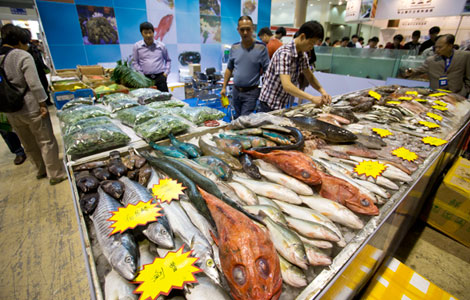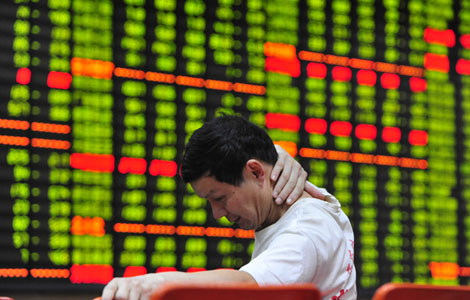
China and other emerging economies should guard against possible financial turmoil caused by policy decisions being made in developed countries, a senior finance official said on Monday.
Dangers include imported inflation as a result of excessive liquidity amid quantitative easing measures, and burst asset bubbles once those policies are withdrawn, according to assistant Finance Minister Zheng Xiaosong.
"We should improve the relevance and flexibility of macroeconomic policies to properly manage hot money flows, and take measures to ensure the stability of overall pricing levels," Zheng said on the sidelines of the Boao Forum for Asia.
He said, "We have to intensify regional cooperation, and establish a sound supervision mechanism, allowing us better knowledge of the short-term capital flow to avoid financial instability caused by fast-in, and fast-out hot money."
Since 2012, major developed economies have begun a new round of QE to boost growth and stabilize financial markets, but Zheng said the effectiveness of such measures has been declining.
The US Federal Reserve, for instance, has linked its easing policies to cutting the country's unemployment rate to 6.5 percent, while Japan said it would not halt its capital injection until inflation reaches two percent.
"Noticeably, this round of QE doesn't come with a scale or time limit," Zheng said, adding that the measures are unlikely to be withdrawn short term.
"Although easing policies have played a role in stabilizing the financial markets, over the long-term, excessive liquidity in the financial markets will inevitably lead to disordered cross-border capital flow.
"Not only will it harm financial market stability and push up commodity prices, it will put more imported inflationary pressures on Asian countries, particularly emerging markets, and may also lead to asset bubbles."
 HK's new cruise terminal receives luxury liner
HK's new cruise terminal receives luxury liner
 Future points to carbon trading
Future points to carbon trading
 Seafood businesses flounder amid spending cut
Seafood businesses flounder amid spending cut
 Equities slump amid slow-growth estimates
Equities slump amid slow-growth estimates
 Auto show opens with much fanfare in Xi'an
Auto show opens with much fanfare in Xi'an
 Sunnylands summit fuels Chinese tourism interest
Sunnylands summit fuels Chinese tourism interest
 'Palace on wheels' on sale for $3.13m in Dubai
'Palace on wheels' on sale for $3.13m in Dubai
 Fortune smiles on Chengdu as forum concludes
Fortune smiles on Chengdu as forum concludes